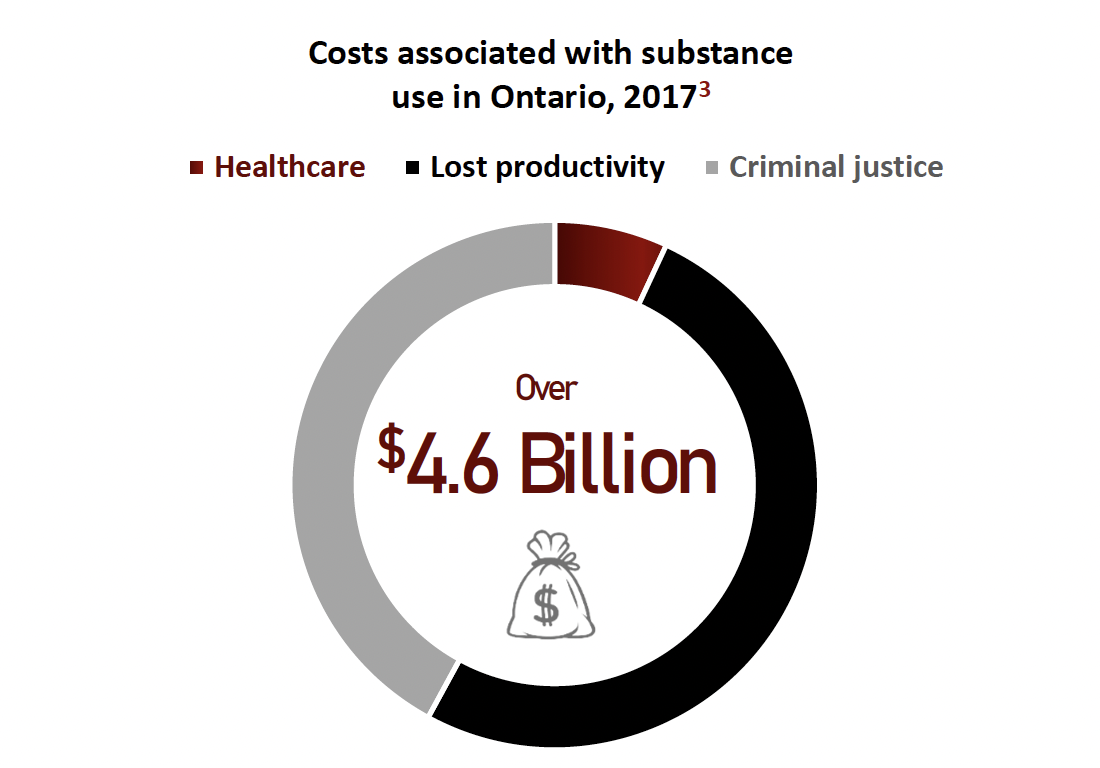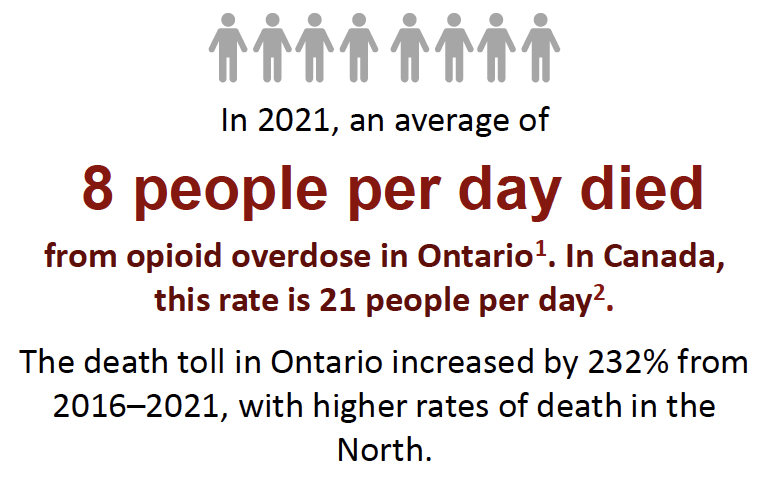WELLINGTON COUNTY – Drug strategy officials here have released a set of fact sheets in an effort to address the ongoing drug poisoning crisis that’s taking a toll on the local community and across Ontario.
On May 2 the Wellington Guelph Drug Strategy (WGDS), in partnership with the Drug Strategy Network of Ontario, released three “Choosing a New Direction” fact sheets about the crisis, its implications, and possible ways to address it.
Officials say there is an average of eight opioid-related deaths every day across the province – and no communities are immune.
From January to March, seven deaths in Guelph and Wellington were drug-related (confirmed or probable), according to reports from the Ontario Coroner.
And between 2015 and 2022, the rate of drug poisoning deaths (per 100,000 people) increased by 360% in Guelph Wellington.
These deaths represent “just the tip of the iceberg” and are “only a fraction of the harm resulting from … current drug policies,” officials say.
“Increasingly we are seeing significant costs to families and communities as a result of the ongoing cycle of grief and suffering, along with mounting burnout and vicarious trauma for our first responders, health and social service providers,” stated WGDS manager Adrienne Crowder.
“These costs, including deaths and injuries, are largely preventable, but we need action now.”
The WGDS and the Drug Strategy Network of Ontario have released the fact sheets in an effort to “improve community safety, reduce the economic and moral burden on first responders, and improve the health and well-being of people who use substances.”

This chart from the drug strategy fact sheets illustrates the annual costs associated with substance use in Ontario. Submitted image
The “Choosing a New Direction” fact sheets note:
- there were 2,880 opioid-related deaths on Ontario between 2016 and 2021;
- an average of 21 people per day died from an opioid overdose across Canada in 2021;
- the costs associated with substance use in Ontario (in 2017) top $4.6 billion, including health care, lost productivity and through the criminal justice system; and
- the vast majority of drug samples checked between 2019 and 2022 did not contain what the purchasers believed they did.
WGDS committee chair Lindsay Klassen said the local group supports “the development of a single public health framework with specific regulations for all psychoactive substances,” as recommended by Health Canada’s Expert Task Force on Substance Use.
“However, until this framework is created, we support the continued call for equitable funding for evidence-informed treatment and harm reduction services,” Klassen stated.
“In Guelph Wellington we are actively working to dismantle systemic stigma related to substance use, and to find ways to make long-term investments for upstream prevention and early intervention to address the factors that put people at more risk of experiencing harms – including death – because of substance use.”
For more information on the Drug Strategy Network of Ontario and its fact sheets, visit www.drugstrategy.ca.




